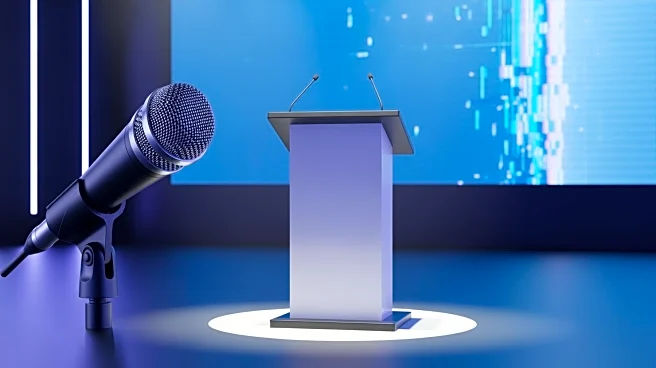What's Happening?
Laura Owens has been indicted on additional charges related to a false pregnancy claim involving a second victim. Owens, previously accused of faking a pregnancy with former 'Bachelor' star Clayton Echard, now faces charges including perjury, fraudulent
schemes, identity theft, forgery, and extortion. The Maricopa County Attorney’s Office revealed that Owens fabricated documents to support her claims. Owens initially sought child support from Echard, later alleging a miscarriage. The case has attracted attention due to its connection to a popular reality TV show and the nature of the allegations.
Why It's Important?
The case underscores the potential for fraud and manipulation in personal relationships, particularly involving public figures. It highlights the challenges in verifying claims of pregnancy and the legal implications of false allegations. The situation may influence public policy on identity theft and fraud, prompting stricter regulations and verification processes. The case also reflects societal concerns about the exploitation of celebrity status for personal gain, impacting the reputation and privacy of those involved.
What's Next?
Owens is scheduled to go to trial in January 2026 for the charges related to Echard. The legal proceedings will likely involve detailed examination of evidence and testimonies from both parties. The outcome could set a precedent for handling similar cases of fraud and identity theft. The trial may also prompt discussions on legal protections for individuals accused of false claims and the responsibilities of public figures in personal disputes.
Beyond the Headlines
The case raises questions about the ethical implications of exploiting personal relationships for financial gain. It challenges societal perceptions of trust and integrity in intimate partnerships. The situation may lead to increased awareness of the psychological and emotional impact of false allegations on victims. Additionally, it could influence public discourse on the responsibilities of media in reporting such cases and the potential for sensationalism.















